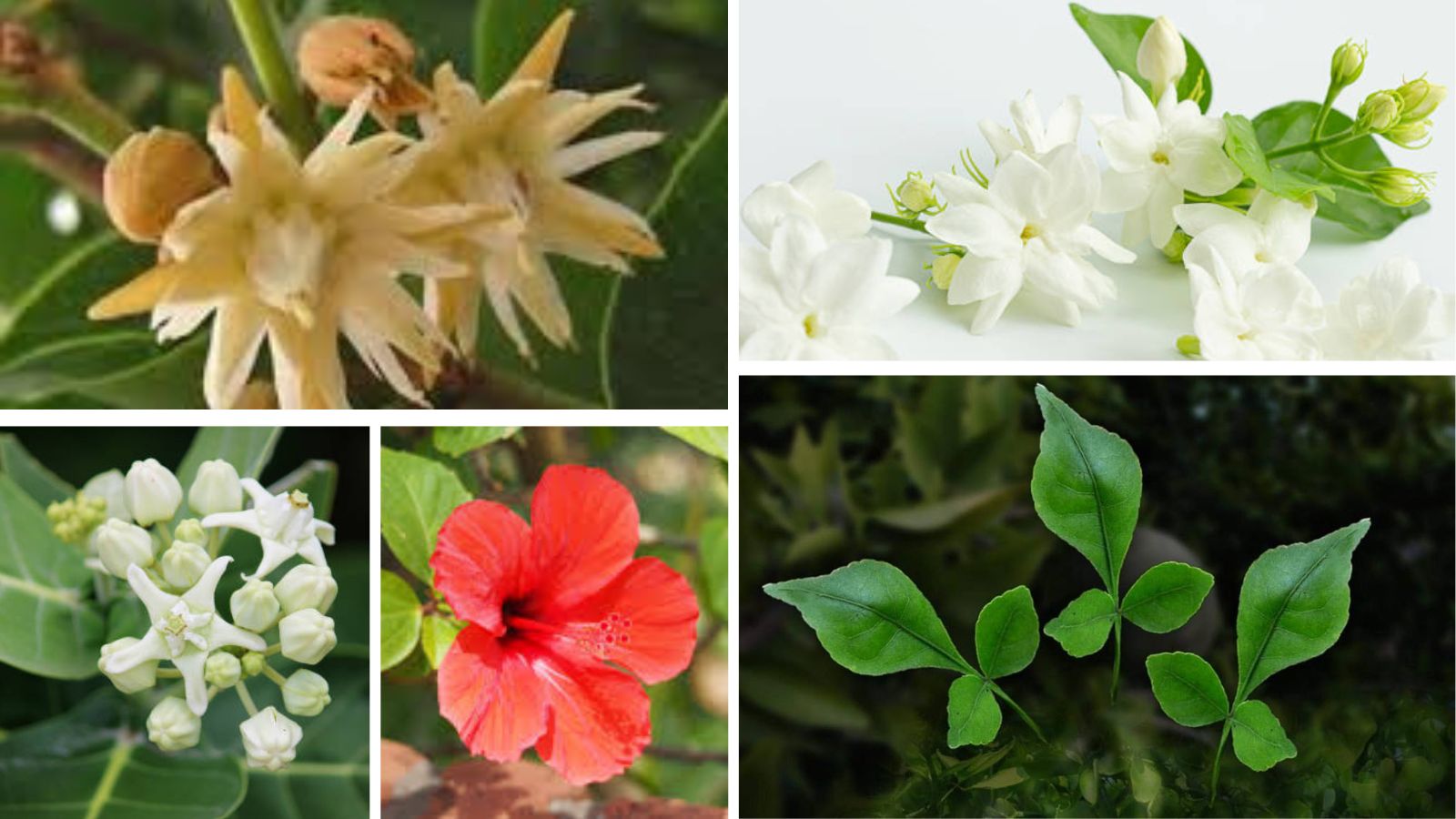[ad_1]
The Bel Patra tree, believed to have been created by Lord Brahma, is especially significant in the worship of Lord Shiva. The tri-lobed leaves of the tree symbolize the three eyes of Mahadev and hold immense spiritual power. Offering Bel Patra leaves to the Shivalinga is thought to bring prosperity and fulfillment in life. This leaf is considered so sacred that even the sight of it is believed to purify the hearts of devotees.
2. Thummi: The Flower of Integrity
Thummi flowers hold a unique place in Shiva worship. It is believed that offering Thummi flowers can purify the soul and prevent sins related to deceit, especially towards teachers or friends. This flower is a symbol of honesty, and its offering is believed to grant moral strength and a clear conscience to devotees.
3. Datura: The Flower of Mahadev’s Sacrifice
Datura, also known as the devil’s trumpet or moonflower, is another favourite of Lord Shiva. Legend has it that this flower emerged from Lord Shiva’s chest after he consumed the deadly poison during the churning of the ocean, saving the universe from destruction. Datura is often associated with purification and detoxification, and offering it to the Shivalinga is believed to free devotees from negative influences and harmful thoughts.
4. Japakusum (Hibiscus): The Flower of Devotion
The Japakusum, or bright red hibiscus flower, is a common offering to Lord Shiva, particularly during Mahashivratri. This flower is symbolic of intense devotion and represents the destruction of negative energies and obstacles. Offering hibiscus to the Shivalinga is believed to invoke Lord Shiva’s blessings for a peaceful and prosperous life.
5. Mogra: The Flower of Fertility
The fragrant Mogra flower is especially dear to Lord Shiva. It is believed that those seeking to have children should offer Mogra flowers with deep devotion, as doing so is said to bless them with offspring. Additionally, offering Mogra with a pure heart is believed to bring blessings to a beautiful and devoted spouse.
6. Rose: The Flower of Kailash Prapti
Rose flowers hold a special place in Shiva worship, symbolizing the performance of a great ritual or Yagna. It is said that offering eight roses to Lord Shiva is equivalent to the spiritual merit of conducting a yagna with ten horses. This offering is believed to pave the way for devotees to reach Kailash Prapti, the ultimate abode of Lord Shiva.
7. Bakul: The Fragrant Flower of Creation
Known for its intense fragrance, the Bakul flower symbolizes Lord Shiva’s creative powers. It is often offered to him during evening prayers. The Bakul flower, with its distinct aroma and deep spiritual meaning, is believed to bless devotees with creative energy and innovation, empowering them to build something meaningful in their lives.
8. White Crown (Akanda): The Flower of Redemption
The White Crown flower, also called Akanda, is closely associated with atonement. It is believed that offering this flower to Lord Shiva can absolve one of sins such as adultery. This flower is a symbol of purity and transformation, and its offering is said to bring peace, prosperity, and stability to the devotee’s life.
Conclusion: Offerings of Faith and Blessings
The act of offering flowers to Lord Shiva is not merely a ritual; it is a deep spiritual connection with the divine. Each of these eight flowers carries unique significance, helping devotees purify their hearts, seek forgiveness, and gain blessings for a prosperous life. By incorporating these sacred flowers into Shiva worship, devotees express their devotion and align themselves with the cosmic energies of transformation, peace, and enlightenment.
[ad_2]
